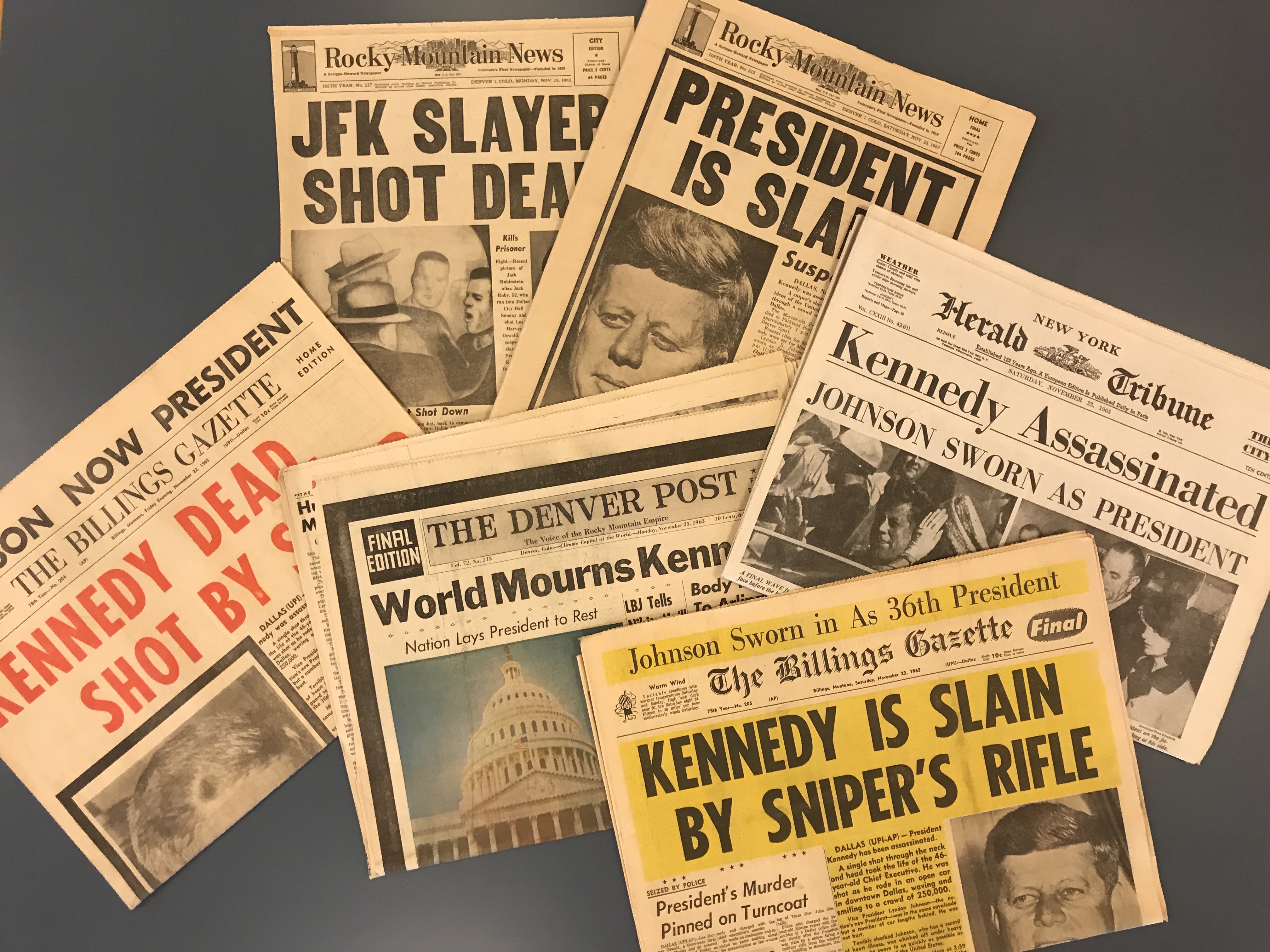Can a single day in history irrevocably alter the course of a nation? The assassination of President John F. Kennedy on November 22, 1963, in Dallas, Texas, stands as a chilling testament to the power of a single, tragic event to reshape a nation's identity and the world's perception of America.
The echoes of that fateful day reverberate through time, prompting us to examine the immediate aftermath, the lasting legacy, and the enduring fascination with the story of John F. Kennedy. The headlines of the era, captured in the newspapers that chronicled the event, serve as primary sources, offering a raw and immediate perspective on the shock, grief, and disbelief that gripped the nation. These aren't mere relics of the past; they're windows into a moment that continues to shape our understanding of American history.
Newspapers, once the ubiquitous purveyors of news, played a crucial role in relaying the assassination's grim details to a stunned public. The Dallas Morning News, a newspaper intrinsically linked to the tragedy, captured the horror in a bold headline: "KENNEDY SLAIN ON DALLAS STREET". The front page of the November 23, 1963, edition, a morning newspaper, presented a stark and indelible image of the assassination. Other newspapers, such as the Los Angeles Times and the San Diego Evening Tribune, rushed to print editions that captured the gravity of the news. The Washington Post, too, carried the story with a front-page report in the days that followed. Such newspapers, now vintage items, remain in high demand.
- Perrey Reeves From Entourage To Yoga A Look At Her Life Career
- Human Latch Horror Gary Mars Terrifying Transformation
The value of these historical artifacts extends beyond their monetary worth. Newspapers from the JFK assassination era provide a direct line to the emotional heart of the moment. They offer invaluable context for understanding the historical, social, and political landscape of the time. Educators and researchers alike can leverage these primary sources to engage students in critical thinking and to foster a deeper understanding of the era. The preservation of these historical documents ensures that future generations can connect with the past in a very personal and meaningful way.
The Dallas Morning News, the newspaper of record in the city where the assassination occurred, has seen its November 23 edition become a highly prized collector's item. Some copies of this edition are available at a higher price. Similarly, other newspapers that reported the assassination on November 22 or 23 hold significant historical value. The value of these papers vary, depending on condition, rarity, and demand within the collectors' market. The headlines themselves, the style of reporting, and even the advertisements of the time provide crucial insight into the period.
The lingering impact of the assassination is evident in the ongoing interest in the event. Memorabilia, from memorial cards to funeral artifacts, continues to attract collectors. The "Talking frame & original funeral cloth" and "Dallas motorcade of John F. Kennedy and Robert Kennedy during campaigning, 1960 poster print" mentioned among other artifacts show the events deep-seated impact on American culture and politics. The lasting impact of this history is evidenced by its inclusion in educational settings and scholarly studies.
- October 17 Zodiac Libra Traits Compatibility Horoscope Insights
- Michael J Fox Height How Tall Is The Back To The Future Star
The headlines of the newspapers, from the stark pronouncements of the Dallas Morning News to the more measured tones of the Washington Post, tell a tale of shock, grief, and the struggle to comprehend the unimaginable. These newspapers are not just historical artifacts; they are gateways to understanding a watershed moment in American history. The story of the assassination of John F. Kennedy continues to be told and retold. The newspapers of November 1963 will be the first draft of history for an event that would forever alter the course of the United States.
The assassination of President John F. Kennedy, deemed by many as the "crime of the century," continues to capture the world's imagination. The tragedy of the day, and its lasting impacts, remains a subject of intense interest, research, and remembrance.
| Category | Details |
|---|---|
| Full Name | John Fitzgerald Kennedy |
| Born | May 29, 1917, Brookline, Massachusetts |
| Died | November 22, 1963 (aged 46), Dallas, Texas (assassinated) |
| Political Party | Democratic |
| Presidential Term | January 20, 1961 November 22, 1963 |
| Vice President | Lyndon B. Johnson |
| Education | Harvard University (B.A.) |
| Military Service | United States Navy (1941-1945) |
| Key Policies & Achievements |
|
- His leadership during the Cuban Missile Crisis is widely admired.
- His advocacy of the Civil Rights Act shaped modern American social policy.
- His vision of a "New Frontier" inspired a generation.


